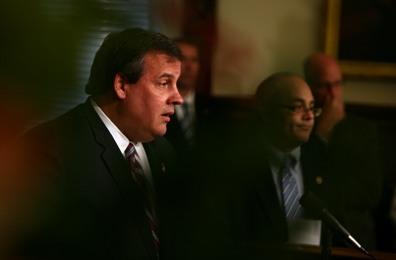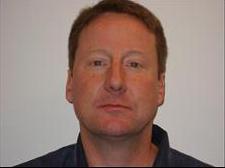Latest
St. Patrick's Day Marijuana Policy Reform Rally and Press Conference
The Empire State NORML (the New York State chapter of the National Organization for the Reform of Marijuana Laws (NORML)) will remind New Yorkers that marijuana is a safer alternative to alcohol for St. Patrick’s Day celebrations.
“While scores of New Yorkers are out getting hammered, we want to remind the Big Apple that there is a safer, greener and cleaner choice for adults: marijuana,” said Doug Greene, Legislative Director of Empire State NORML, who organized the event for the first time in 2010.
“In an era of budget cuts and worsening public health, why is the Bloomberg administration driving New Yorkers to drink while spending tens of millions of dollars per year arresting peaceful, healthy cannabis consumers? New York City made over 50,000 marijuana possession arrests last year alone, and over 500,000 since 1996,” said Greene.
Marijuana arrests are 15% of all arrests in New York City. The NYPD is now jailing people for marijuana possession at the rate of nearly 1,000 arrests a week. With 2.7% of the U.S. population, New York City represents 6% of nationwide marijuana arrests.
Greene was first inspired to organize “Marijuana is SAFER” events after reading the book of the same name (subtitled “So Why Are We Driving People to Drink?), co-authored by Paul Armentano, the Deputy Director of NORML, by Mason Tvert, Executive Director of SAFER (Safer Alternative for Enjoyable Recreation) and by Steve Fox, Director of State Campaigns for the Marijuana Policy Project.Speakers include:
· Dr. Julie Holland, a nationally recognized authority on drugs and drug safety, who has appeared multiple times on Today. She is the author of “Weekends at Bellevue” (which may be coming to TV on Fox this fall ) and editor of “The Pot Book: A Complete Guide to Cannabis” and “Ecstasy: The Complete Guide.”
· Dr. Harry Levine, Professor of Sociology at CUNY Queens College, the co–author of the NYCLU report “Marijuana Arrest Crusade: Racial Bias and Police Policy in New York City, 1997-2007.” He is also the co–author of a new report on the costs of New York City’s marijuana arrests, which will be released on March 15 by the Drug Policy Alliance.
· Tony Newman, Director of Media Relations for the Drug Policy Alliance (DPA), the nation’s leading organization calling for alternatives to the drug war and policies based on science, compassion, health, and human rights.
· Daniel Jabbour, New York State Coordinator for Students for Sensible Drug Policy (SSDP), an international grassroots network of students who are concerned about the impact drug abuse has on our communities, but who also know that the War on Drugs is failing our generation and our society.
· Chris Goldstein, Board Member, NORML-NJ/Coalition for Medical Marijuana-NJ (CMM-NJ). Chris is a radio broadcaster and marijuana advocate. Chris is considered an expert on the topic of marijuana and can comment on New Jersey and national issues regarding cannabis.
Marijuana Reform Advocates Call for a Safer Alternative to Alcohol for St. Patrick's Day (Press Release)
FOR IMMEDIATE RELEASE: March 11, 2011
CONTACTS: Rev. Jay Goldstein - Executive Director - Empire State NORML at (212) 473-2486 or [email protected]; Doug Greene - Legislative Director - Empire State NORML at (516) 242-4666 or [email protected]
MARIJUANA REFORM ADVOCATES CALL FOR A SAFER ALTERNATIVE TO ALCOHOL FOR ST. PATRICK’S DAY
WHEN: St. Patrick’s Day, Thursday, March 17th, 2011 at high noon
WHERE: City Hall Park - Broadway between Park Place and Barclay (east side)
WHO: Empire State NORML and numerous speakers (see list below):
WHAT: Rally and Press Conference
On March 17th (St. Patrick’s Day) at high noon, Empire State NORML (the New York State chapter of the National Organization for the Reform of Marijuana Laws (NORML)) will remind New Yorkers that marijuana is a safer alternative to alcohol for St. Patrick’s Day celebrations.
“While scores of New Yorkers are out getting hammered, we want to remind the Big Apple that there is a safer, greener and cleaner choice for adults: marijuana,” said Doug Greene, Legislative Director of Empire State NORML, who organized the event for the first time in 2010.
“In an era of budget cuts and worsening public health, why is the Bloomberg administration driving New Yorkers to drink while spending tens of millions of dollars per year arresting peaceful, healthy cannabis consumers? New York City made over 50,000 marijuana possession arrests last year alone, and over 500,000 since 1996,” said Greene.
Marijuana arrests are 15% of all arrests in New York City. The NYPD is now jailing people for marijuana possession at the rate of nearly 1,000 arrests a week. With 2.7% of the U.S. population, New York City represents 6% of nationwide marijuana arrests.
Greene was first inspired to organize “Marijuana is SAFER” events after reading the book of the same name (subtitled “So Why Are We Driving People to Drink?), co-authored by Paul Armentano, the Deputy Director of NORML, by Mason Tvert, Executive Director of SAFER (Safer Alternative for Enjoyable Recreation) and by Steve Fox, Director of State Campaigns for the Marijuana Policy Project.
Speakers include:
· Dr. Julie Holland, a nationally recognized authority on drugs and drug safety, who has appeared multiple times on Today. She is the author of “Weekends at Bellevue” (which may be coming to TV on Fox this fall ) and editor of “The Pot Book: A Complete Guide to Cannabis” and “Ecstasy: The Complete Guide.”
· Dr. Harry Levine, Professor of Sociology at CUNY Queens College, the co–author of the NYCLU report “Marijuana Arrest Crusade: Racial Bias and Police Policy in New York City, 1997-2007.” He is also the co–author of a new report on the costs of New York City’s marijuana arrests, which will be released on March 15 by the Drug Policy Alliance.
· Tony Newman, Director of Media Relations for the Drug Policy Alliance (DPA), the nation’s leading organization calling for alternatives to the drug war and policies based on science, compassion, health, and human rights.
· Daniel Jabbour, New York State Coordinator for Students for Sensible Drug Policy (SSDP), an international grassroots network of students who are concerned about the impact drug abuse has on our communities, but who also know that the War on Drugs is failing our generation and our society.
· Chris Goldstein, Board Member, NORML-NJ/Coalition for Medical Marijuana-NJ (CMM-NJ). Chris is a radio broadcaster and marijuana advocate. Chris is considered an expert on the topic of marijuana and can comment on New Jersey and national issues regarding cannabis.
###
Australians Furious As Drug Prohibition War Targets Common Garden-Variety Plants
Americans for Safe Access Activist Newsletter - March 2011
|
| |||||||||||||||||||||||||
Life After the War on Drugs: Reviewing Past and Present Policies with an Eye Toward Legal Reform
University of the District of Columbia David A. Clarke School of Law
2011 Law Review Symposium

"Life After the War on Drugs: Reviewing Past and Present Policies With an Eye Toward Legal Reform"
Introduction (10:00 – 10:15 a.m.)
• John Brittain, Professor, UDC-DCSL, Chief Counsel and Senior Deputy Director of the Lawyers' Committee for Civil Rights Under Law (2005-2009)
Panel 1: Drug Policy at Home and Abroad (10:15 a.m. – 12:00 p.m.)
• Eric Sterling, Advisory Board Member, Law Enforcement Against Prohibition (LEAP)
• Brooke Mascagni, PhD Candidate, University of California, Santa Barbara
• Jordan Blair Woods, PhD Candidate, Cambridge University (U.K.), J.D. University of California Los Angeles
Lunch (12:00 – 1:00 pm)
• Lunch Keynote Speaker: Ronald C. Machen, Jr., United States Attorney for the District of Columbia
Panel 2: Conflicts between State and Federal Drug Laws (1:00 – 3:30 p.m.)
• Andrew Ferguson (Moderator), Professor, UDC-DCSL, Public Defender Service of the District of Columbia (2004-2010)
• Robert Hildum, Director, D.C. Dept. of Youth Rehabilitation Services (2010)
• Sumeet H. Chugani, Esq. and Xingjian Zhao, Esq., Diaz, Reus & Targ, LLP (Miami, FL)
• Alex Kreit, Director, Center for Law and Social Justice, Thomas Jefferson School of Law (San Diego, CA)
Panel 3: The Unknown Effects of the War on Drugs (3:45 – 5:00 p.m.)
• Brian Gilmore, Director, Michigan State University College of Law Housing Clinic
• Ken Lammers, Deputy Commonwealth Attorney, County of Wise and City of Norton in Virginia
• Michael Liszewski, Board of Directors, Students for Sensible Drug Policy
Cocktail Reception (5:10 – 6:00 p.m.)
Plenary Panel: Life After the War on Drugs (6:00 – 9:00 p.m.)
• Keynote Speaker: Wade Henderson, President and CEO, The Leadership Conference on Civil and Human Rights
• Jasmine Tyler, Deputy Director of National Affairs, Drug Policy Alliance
• Mark Osler, Professor, University of St. Thomas School of Law (Minneapolis, MN)
• The Honorable Arthur L. Burnett, Sr., National Executive Director, National African-American Drug Policy Coalition
• Dr. Faye Taxman, Director, Center for Advancing Correctional Excellence, George Mason University
The event is free and open to the public, but registration is limited. To register, see http://www.law.udc.edu/events/event_details.asp?id=136549.
For any questions, please contact Symposium Editor Leila Mansouri at [email protected].
Florida Lawmakers Sponsor Bill to Make Medical Marijuana Legal
Mexican Drug Prohibition War Affects Texas Farmers
Spillover Violence from Mexico Drug Prohibition War - Why Do Leaders Deny It?
Connecticut Voters Support Marijuana Law Reforms
Bolivia President Evo Morales Attacks Drug Reports
Is Hawaii One Step Closer to Legalizing Marijuana?
Delaware Valley School District Sued Over Drug Testing Policy
We Need Your Ideas!
|
Portugal's Experiment with Drug Laws Is Paying Off (Opinion)
Ron Paul: Hemp for Victory
Mexico Drug War Update
New Jersey's Medical Marijuana Muddle [FEATURE]
US Marshal, Drug Fugitive Die in St. Louis Fire-Fight
This Week in History
Pagination
- First page
- Previous page
- …
- 337
- 338
- 339
- 340
- 341
- …
- Next page
- Last page


 “ASA members and affiliates across the county have been asking us to help them gain the skills they need to bring about change at the local and federal level,” said ASA Executive Director Steph Sherer. “Virtual conferences let us reach activists everywhere with trainings and materials they can use to build a stronger grassroots medical cannabis movement.”
“ASA members and affiliates across the county have been asking us to help them gain the skills they need to bring about change at the local and federal level,” said ASA Executive Director Steph Sherer. “Virtual conferences let us reach activists everywhere with trainings and materials they can use to build a stronger grassroots medical cannabis movement.”




